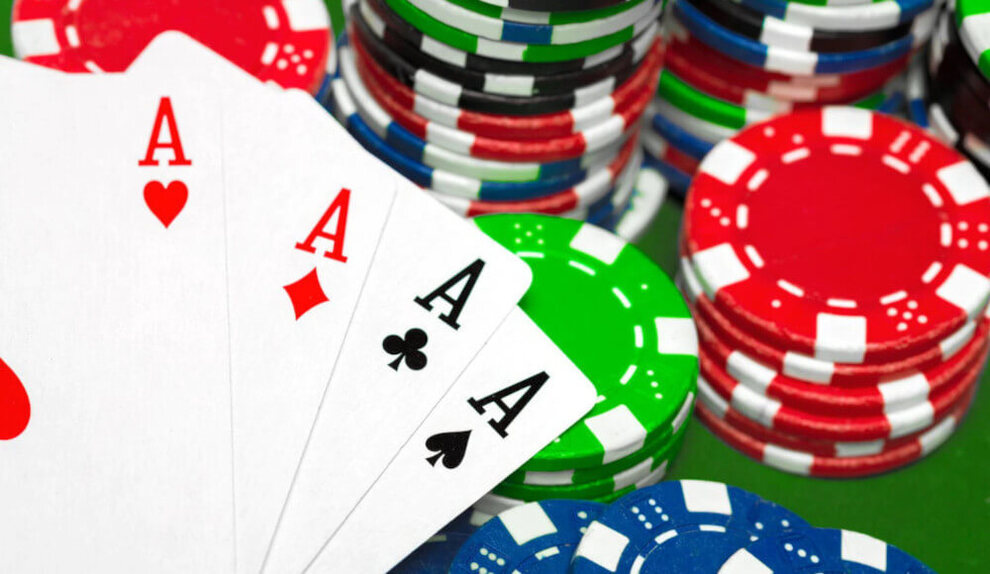Are people more likely to gamble when they hear slot machine sounds?
Venice was the first city in the world to have casinos in the modern sense around the middle of the 17th century. Slots are the most common name for games that involve spinning reels with symbols on them, but they are also known as puggies, pokies, and fruities. Currently, these games generate the majority of the company’s revenue. The initial development of these machines was carried out in 1981 by a firm based in New York and owned by two friends from Brooklyn named Pitt and Sittman.
A few years later, a man named Charles Augustus Fey from San Francisco simplified their five-card drum mechanism. He accomplished this by reducing the total number of drums to three and introducing an automatic payout mechanism. The majority of people believe Fey was the first to create a slot machine.
Bally Industries created the first electromechanical reel-spinning game around sixty years after his invention was first made available to the public. This type of game quickly became dominant in the casino gaming world. After that, slot machines became the industry’s primary source of revenue. They were able to generate the majority of the industry’s revenue, owing to the low operational costs they incurred and the fast pace of their activity.
Before the introduction of electronics, slot machines were relatively uninteresting pieces of machinery. Furthermore, because there is widespread opposition to gambling, the majority of the prizes were free beverages and cigars. However, once game developers were able to incorporate flashing lights and happy sounds into slot machine gameplay, they went all out.
As a result, when someone who does not gamble learns about these machines, the first things that come to mind are the pulsating lights, alarm-like noises, and flashing jackpot signs. Owners and operators of gambling establishments understand how important it is to keep players interested to encourage them to play for longer periods. As a result, they employ every available resource to keep players’ eyes glued to their screens and their hands hovering over the spin button. To solve this equation, sounds had to be included. We will explain how in the following sections.
Noise’s Influence on Behavior
There is no doubt that sound, even though it cannot be seen, is a powerful force that can elicit a wide range of responses from those who hear it. A sudden one has the power to stop people in their tracks, and a youngster’s uncontrollable laughter has the power to make most people smile.
According to the findings of a study conducted at the Brighton and Sussex Medical School and published in the journal Scientific Reports, the presence of natural sounds naturally affects the body’s rest-digest autonomic nerve systems and the flight-or-flight response. This is true because hearing is primarily used for early warning. Loud, startling noises can cause the stress hormone cortisol to be released, altering a person’s breathing pattern and speeding up their heart rate. These are only its physiological effects on the body.
Sounds have the power to influence both one’s mental state and cognitive performance. When these two factors are combined, they have the potential to influence people to act in specific ways. When people report feeling a specific emotion in a venue, it is frequently attributed to the venue’s acoustic properties, which shape how sounds flow inside them. This is due to how the acoustic properties shape how sounds move within the venue.
It’s worth noting that several studies have found that noise pollution is a significant factor that contributes to occupational injuries. A cross-sectional study conducted in Iran, for example, demonstrated unequivocally that prolonged exposure to extremely loud noises can increase aggressive behavior.
A study conducted in 2014 at the Medical University of Plovdiv in Bulgaria discovered similar results. It was also mentioned that elderly people are disproportionately affected by noises that are constantly heard and are louder than what is considered normal. As a result, they become more aggressive.
The Mental Game At Work Behind Slot Machines
Marcia Spetch, a psychology professor at the University of Alberta 2020, led a study that sought to demonstrate that the sounds of the game participants played increased their desire to bet. It’s worth noting that her research focused on reel-spinners found on the internet. This does not change the fact that online slot machines reproduce the sounds of their land-based counterparts.
Professor Spetch demonstrated that audible indicators, such as the sound of coins rattling, made slot game rewards more memorable. As a result, factors other than the potential prize pool can influence the appeal of slot machines. Recollections and emotions are also important in this.
When most people think of slot machine sounds, the first thing that comes to mind is the idea that happy noises encourage people to play more by lifting their mood and providing a sense of happiness. Gamblers, on the other hand, should be aware that their attraction to gambling may be skewed and guided by a distorted picture of past events.
A similar study was conducted in 2018 by the University of British Columbia, and the findings suggested that when exposed to attractive jingles on gaming floors, the majority of gamblers are more likely to engage in risky decision-making. When these sensory cues were removed from the experiment, the participants’ betting patterns became significantly more conservative.
Casinos may have known this for years, as nearly every gaming establishment employs a variety of sensory hacks with the goal of confusing customers and preventing them from leaving the establishment. These can range from a lack of windows and the presence of clocks on the walls to checkered carpets and multicolored lights in every room. The illusion that someone is winning nearby, as well as the assumption that people hearing the noises could be the next to win, are both created by loud and exciting sounds.
The pandemic caused by COVID-19 put an end to life as we know it for a significant portion of the year 2020. The unique virus was discovered for the first time in December of 2019 in Wuhan, China. Even though it was implemented, a subsequent lockdown failed to contain a COVID-19 epidemic in the city that serves as the provincial capital of Hubei province. This was the month that media reports of a new infectious disease that was most likely spreading around the world began to circulate. By March of 2020, the entire world had hibernated in the hopes of slowing the virus’s spread and limiting the number of new infections. These objectives were met through strategies such as staying indoors and socially isolating oneself from others.
At the start of the outbreak, several software engineers and medical health specialists proposed using smartphone technology to help prevent the virus from spreading further. There has never been a time in human history when such a workable reaction was available; there has never been a time when this was the case. As a result, a large number of people have jumped at the chance to create mobile applications that will benefit both their local society and humanity in general. These people are attempting to improve the world.
By April 2020, Google Play had dozens of COVID apps, many of which included contact tracing. Contact tracing is a critical technique for breaking up COVID-19 transmission chains and lowering the death rate associated with it. These tracking programs can locate misplaced or stolen mobile devices by continuously searching for nearby mobile devices via Bluetooth and exchanging anonymous ID numbers. The codes in question notify people if they are in the vicinity of contaminated events and have either recognized that they are contaminated or have come into contact with someone who is ill. Following that, they document this status in a centralized database accessible via an application and maintained by a national or local health authority. In the following sections, we will examine five distinct pieces of dedicated software and discuss how well they have performed thus far.
Extra Articles That Might Interest You – Top Online Gambling Sites

- Gamble Online Real Money
- A Comprehensive Look at Online Gaming Strategies
- Casino Etiquette: Six Things to Do and Avoid at the Casino
- Poker-Friendly Online Casinos
- Here Are Six Reasons Why You Should Play Video Slots Online
- A Comprehensive Look at Online Gaming Strategies
- What You Should Know About Instant Play Casino Websites
- How To Avoid Online Casinos that Cheat Players?
- Enhancing Trust with Blockchain Identity Verification - January 24, 2024
- How Marijuana Turns You into a Food Lover - December 1, 2023
- Behind the Scenes of the U.S. Nuclear Gun - November 28, 2023

